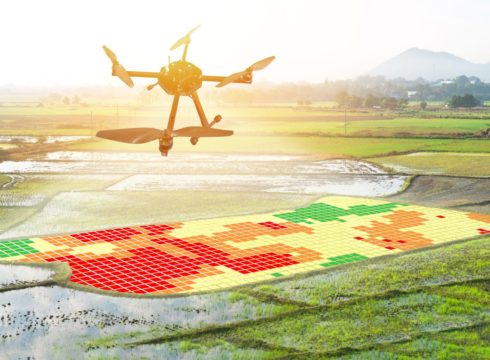SUMMARY
CropIn said it would use the funding to focus on global expansion, after it recently opened an office in Amsterdam
CropIn’s data-driven precision farming platform is built around farm data and agronomy management as well machine learning-based predictive analytics
CropIn claims to have impacted 13 Mn acres of farms and 4 Mn farmers so far through SmartRisk and SmartFarm platforms
Inc42 Daily Brief
Stay Ahead With Daily News & Analysis on India’s Tech & Startup Economy
Precision agriculture startup CropIn has raised $20 Mn in a Series C funding round led by Singapore-based PE firm and impact investor ABC World Asia. The company’s existing investors Chiratae Ventures, Invested Development and Ankur Capital also participated in this funding round, along with new investors such as CDC Group and Infosys cofounder Kris Gopalakrishnan’s family office Pratithi Investment Trust.
In a press statement about the announcement, CropIn said it would use the funding to focus on global expansion. In line with its global focus, the company recently opened an office in Amsterdam, and will be hiring local leaders to drive growth in the European market.
Founded in 2010 by Krishna Kumar, along with Kunal Prasad, CropIn’s data-driven precision farming platform involves SmartFarm, its farm data and agronomy management platform and SmartRisk, its machine learning-based predictive analytics platform. The The fresh capital would also be used to further develop these two key components of CropIn’s business, particularly the artificial intelligence capabilities. CropIn claims to have impacted 13 Mn acres of farms and 4 Mn farmers so far through these two platforms.
With this round, CropIn has raised over $32 Mn overall from its existing investors, a list which also includes BeeNext and the Bill & Melinda Gates Foundation’s Strategic Investment Fund (London and Seattle).
CropIn’s Tech Stack For Precision Farming
CropIn’s SmartFarm platform enables agri-enterprises and farmers to adhere to food safety standards thereby ensuring farm-to-fork traceability in the supply chain. The company has partnered with other global companies in agriculture, including development finance institutions and government entities in 52 countries, to drive penetration of technology into farms
On the other hand, CropIn’s SmartRisk platform improves underwriting and risk assessment to solve financing challenges for farmers. It enables banks, insurance providers and other financial institutions to make informed decisions, identify new customers and offer their financial products and services to high-volume low-ticket customers. SmartRisk analyses and interprets farm-centric data for over 388 crops with nearly 9,500 variants across trillions of data points that grow every day, the company claimed.
SmartRisk’s plot-level data is compiled by combining computer vision with deep-learning algorithms, which are used to process multispectral imagery derived from satellites and drones, field scouting data, and hyperlocal weather data. It is claimed to have processed more than 160 Mn hectares of land area, and has the potential to impact 70 Mn farmers globally in the next 3-5 years, the company said.
Instead of catering directly to farmers, the Bengaluru-based startup operates in the B2B space. It uses satellite images, AI and ML to monitor crop health remotely, makes yield predictions and passes on the insights to Indian agriculture industry, farming companies, financial institutions and policymakers.
Speaking to Inc42 earlier, founder Kumar had said that working in the B2C space and catering to farmers is difficult for agritech startups if they want to achieve scale in India currently. “If your business model depends on farmers from whom you have to collect your revenue, it will be tough. The success of precision farming depends on which markets you are operating in and the farmers you are targeting. If you are targeting a farmer with an acre of land, his return on investment (RoI) may not be great immediately even if he agrees to invest in sensors. The B2C model may work if you are targeting large farmers,” he said, explaining the rationale behind targetting low-ticket but high-volume business in this segment.
Note: We at Inc42 take our ethics very seriously. More information about it can be found here.


